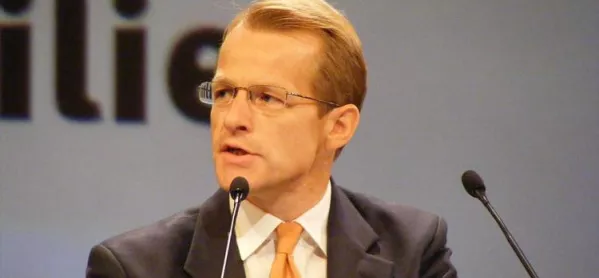Earlier this week, the thinktank I run, CentreForum, with Education DataLab, published a report setting out proposed goals designed to meet world-class standards in education. Most people lauded our aspirations but there were some who, understandably, asked us why we were setting yet more “targets”, given the pressures already faced by both teachers and pupils. In a context where it is usually government setting the targets (normally to the chargrin of whichever public service is tasked with meeting them), the notion of a thinktank setting goals is novel to its supporters and overstepping its boundaries to its critics.
But there is a significant void in the accountability system and it needs, collectively, to be addressed. Parents and schools set expectations for what pupils should achieve; and government, with Ofsted, sets expectations for what schools should achieve. But who is setting expectations for what government should achieve? The government will argue that it is, ultimately, accountable to the electorate who will either punish or reward their performance at the ballot box.
But, first assuming that the state of the education system and not the economy is at the forefront of people’s minds when they vote, there still isn’t a clear expectation of what the school system should be delivering in order to meet the standards of the best in the world. The rise or fall each year in the number of pupils getting good GCSEs is generally the public’s benchmark, but with sweeping reforms about to be introduced, that measure will soon become redundant. Crucially, when those figures are published each year, they have never been pinned to world-class standards. Studies such as Pisa, TIMSS and PIRLS provide information about how well the UK performs in certain tests compared with other countries, but the link between those tests and GCSEs has been difficult for academics to ascertain, let alone non-experts.
So it was appropriate that CentreForum’s first report under its new focus and leadership made clear the importance of understanding what world-class looks like and stimulating a debate about the balance between ambition and reality.
The report has already shed light on just how far we are from a world-class standard. By analysing the current performance of pupils taking their GCSEs, it highlights that only around 35 per cent of pupils would have got a good pass in English and maths under the new, more rigorous system, compared with 58 per cent now.
Stubborn attainment gap
The department’s published performance tables show that the gap between the most disadvantaged and the rest is narrowing each year at the end of the primary stage but is proving stubborn to shift in the secondary phase. But our analysis finds that there is actually a more worrying trend than that. While each year the gap might be smaller, as a disadvantaged child progresses through school, he or she, on average, falls further and further behind the more affluent children until, by the time the cohort take their GCSEs, the disadvantaged child is almost 20 months behind.
These two examples alone demonstrate that, by initiating a debate about what a world-class standard looks like, we have already unveiled worrying trends that are not evident in the published performance tables. It is precisely this information that parents should have access to when choosing a school for their child and which provides a more insightful assessment for the electorate when they consider the government’s reputation in education.
The debate about what world-class standards actually look like will inevitably run on and we in CentreForum are keen to hear views about our proposals. But the principle of setting a world-class standard for government and the education system and of being clear about our expectations from a high-performing education system is important.
David Laws (pictured) is executive chairman at CentreForum, an independent, education thinktank. If you’d like to contribute to the debate on world-class standards, please email measuring.performance@centreforum.org
Want to keep up with the latest education news and opinion? Follow TES on Twitter and like TES on Facebook


